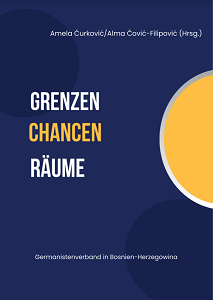Lexikographische Abgrenzung bei Paronymen in fachsprachlichen Diskursen
Lexicographic Demarcation of Paronyms in Specialized Discourses in the Bilingual Bosnian-German Universal Dictionary
Author(s): Alma Čović-Filipović, Minka Džanko
Subject(s): Language studies, Lexis, South Slavic Languages, Translation Studies
Published by: Društvo germanista u Bosni i Hercegovini (DGuBiH) / Germanistenverband in Bosnien-Herzegowina (GViBH)
Keywords: bilingual dictionary; paronymy; specialized language; microstructure; semantic demarcation;
Summary/Abstract: The phenomenon of paronymy has received little attention in linguistics in general and in bilingual lexicography in particular. Isolated studies and initial attempts at definition provide an overview of the structure and functioning of these lexemes, but, as Mell, Schnörch, and Storjohann (2019) rightly state, they are not based on empirical analyses. Paronyms are considered easily confused words due to their orthographic, morphological, and semantic similarities. These similarities can result in uncertainties in usage in both German and Bosnian, leading to confusion among both German learners and native speakers. In this article, using language usage-based findings from the electronic paronym dictionary of the German Language Institute Mannheim, we examine how the same pairs and groups of lexemes are presented lexicographically in existing bilingual dictionaries. The aim of this study is to describe paronyms used in specialized discourses in the microstructure of the Bosnian-German universal dictionary, focusing on meaning, conceptualization, and referential reference in order to delineate their uses and differences in a user-friendly manner. The pairs “illegitimate/non-marital/extramarital” and “method/methodic/methodically” were used as examples. One of the lexicographic suggestions is that, in the case of paronyms, priority should be given to the principle of understandability over the principle of economy. Therefore, instead of a null label for general language use, the label “općenito” (Eng. general usage) should be used.
Book: Grenzen, Chancen, Räume
- Page Range: 31-53
- Page Count: 23
- Publication Year: 2024
- Language: German
- Content File-PDF

